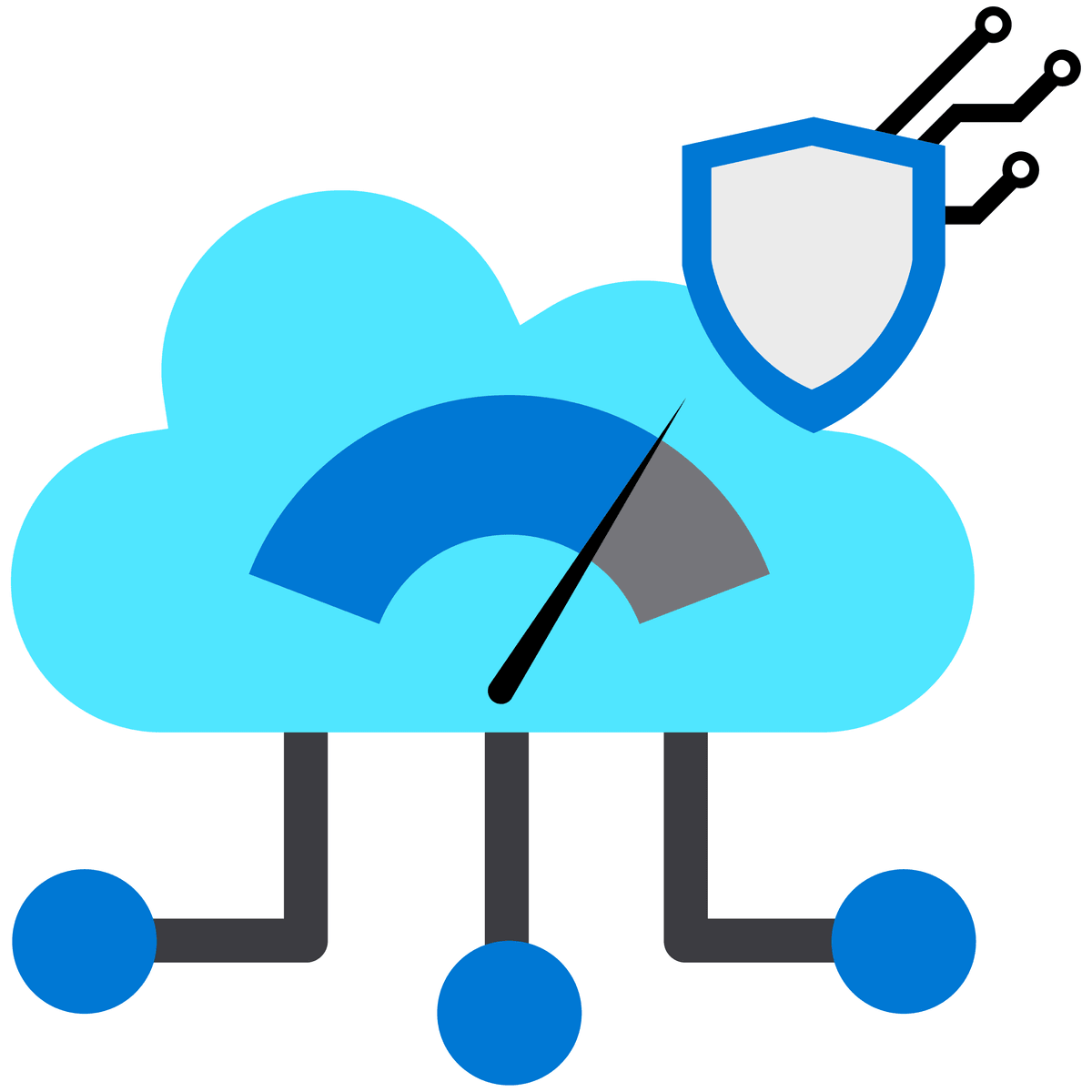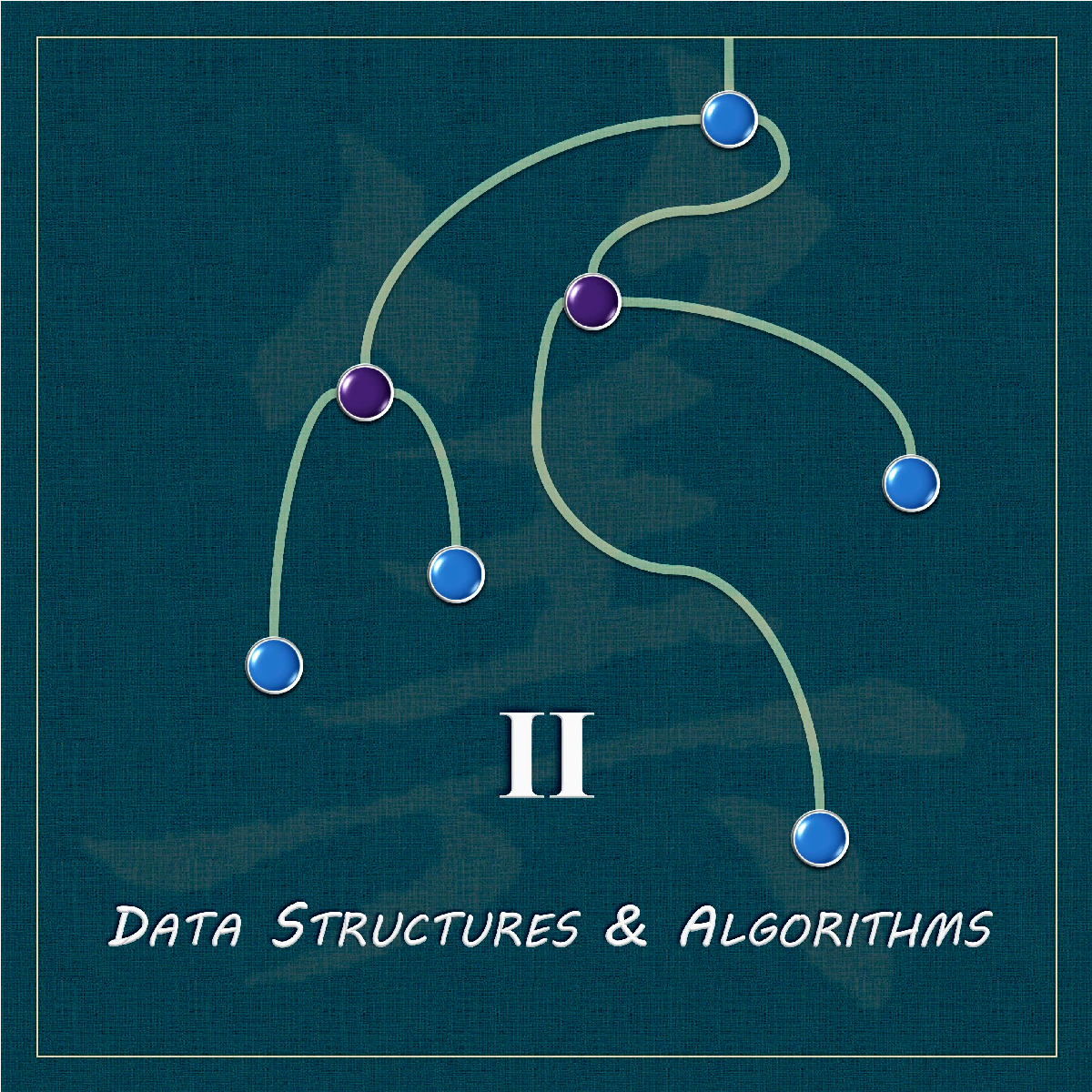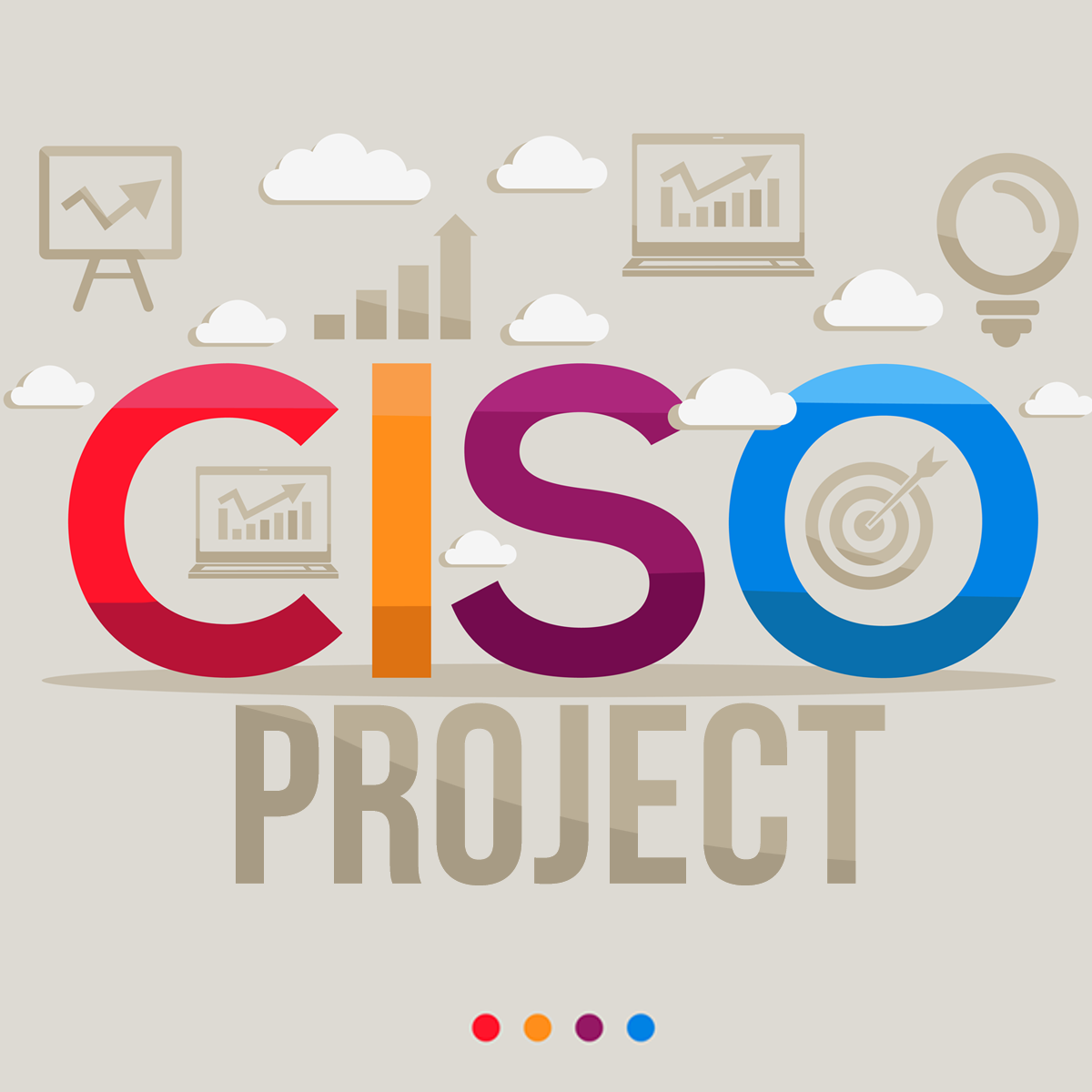Information Technology Manager
Navigating the World of Information Technology Management
In today's digitally driven world, Information Technology (IT) is the backbone of nearly every organization. Overseeing this critical infrastructure is the Information Technology Manager, a role that blends technical expertise with strategic leadership. An IT Manager ensures that an organization's technology systems run smoothly, securely, and efficiently, aligning technological resources with business goals. They are the crucial link between the technical teams implementing solutions and the executive leadership setting organizational direction.
Working as an IT Manager can be deeply engaging. You'll find yourself at the intersection of technology and business strategy, solving complex problems daily. It involves leading teams, managing budgets, and making critical decisions about technology adoption and security. For those fascinated by technology's power to transform businesses and who enjoy guiding teams toward shared objectives, this career offers a dynamic and rewarding path.
Introduction to Information Technology Manager
What is an IT Manager?
An Information Technology (IT) Manager is responsible for planning, coordinating, and directing computer-related activities within an organization. Their primary goal is to ensure that the company's IT systems support its overall objectives effectively and securely. This involves managing the organization's hardware, software, networks, and data.
Think of an IT Manager as the captain of a ship's technical crew. They don't necessarily build every part of the ship themselves, but they understand how all the systems work together. They guide the crew (IT staff) to keep everything running smoothly, navigate through challenges (like system outages or security threats), and plot the course for future technological advancements (upgrades and new systems).
Their responsibilities are broad, encompassing everything from ensuring servers are running and networks are stable to protecting sensitive data from cyber threats. They often manage budgets for technology purchases and oversee the implementation of new IT projects, ensuring they are completed on time and within scope.
The Evolution of IT Management
The role of IT management has evolved significantly over the decades. Initially focused purely on maintaining mainframe systems and basic networks, the function was largely operational. IT departments were often seen as cost centers, primarily providing technical support and keeping the lights on.
With the rise of personal computers, the internet, mobile technology, and cloud computing, IT's role transformed. Technology became deeply integrated into business strategy, driving innovation, efficiency, and competitive advantage. Consequently, IT management shifted from a purely technical function to a strategic one.
Today, IT Managers must understand not only technology but also business processes, risk management, and strategic planning. They are expected to contribute to business growth by leveraging technology, managing digital transformation initiatives, and ensuring robust cybersecurity postures in an increasingly complex threat landscape.
Where Do IT Managers Work?
IT Managers are essential in virtually every industry and sector. Technology is ubiquitous, creating demand for skilled IT leadership across the board. You'll find IT Managers in finance, healthcare, education, manufacturing, retail, government, entertainment, non-profits, and technology companies themselves.
The specific focus of an IT Manager might vary depending on the industry. For example, an IT Manager in healthcare will heavily focus on data privacy (HIPAA compliance) and the integration of electronic health records. In finance, security and compliance with financial regulations are paramount. In manufacturing, managing systems that control production processes (operational technology) might be a key responsibility.
Regardless of the sector, the core function remains consistent: managing the technology infrastructure and team to support the organization's mission. The size and complexity of the organization also influence the role; an IT Manager in a small business might wear many hats, while one in a large corporation might specialize in a specific area like network infrastructure or application support.
Key Responsibilities of an Information Technology Manager
Overseeing IT Infrastructure and Systems
A core responsibility of an IT Manager is the oversight of the organization's entire IT infrastructure. This includes servers, networks (both wired and wireless), storage systems, communication systems (like email and VoIP), and end-user devices (computers, laptops, mobile devices). They ensure these systems are available, reliable, and perform optimally.
This involves monitoring system performance, planning for capacity upgrades, managing backups and disaster recovery processes, and troubleshooting issues as they arise. The goal is to provide a stable and efficient technological environment that allows employees to perform their jobs without interruption.
IT Managers often lead teams of system administrators, network engineers, and support technicians who handle the day-to-day maintenance and operations. The manager provides direction, sets priorities, and ensures standard operating procedures are followed.
To gain foundational knowledge in enterprise systems and networking, consider exploring online courses. These resources can provide structured learning on system administration, network design, and cloud infrastructure management.
Budget Management and Resource Allocation
IT Managers are typically responsible for developing and managing the IT department's budget. This involves forecasting technology needs, estimating costs for hardware, software, services, and personnel, and securing funding approval from senior management.
Effective budget management requires careful planning and justification of expenditures. IT Managers must balance the need for technological upgrades and innovation with cost-effectiveness. They negotiate with vendors for favorable pricing and manage contracts for IT services and licenses.
Resource allocation is another key aspect. This means deciding how best to utilize the department's personnel, budget, and technological assets to meet organizational priorities. IT Managers must make strategic decisions about which projects to pursue, which systems to upgrade, and where to invest in new technologies, ensuring alignment with business goals.
For those interested in the financial aspects of IT, consider exploring resources on IT investment and financial management. Books covering these topics can provide valuable frameworks for managing budgets and making sound investment decisions.
Team Leadership and Collaboration
Leading the IT team is a crucial part of the IT Manager role. This involves hiring, training, mentoring, and evaluating IT staff. Effective IT Managers build cohesive teams, foster a positive work environment, and motivate their staff to achieve high performance.
Communication is key, both within the IT department and across the organization. IT Managers must clearly articulate technical concepts to non-technical stakeholders, understand business needs, and translate them into technical requirements. They collaborate closely with other department heads to ensure IT supports their functions effectively.
This cross-departmental collaboration involves understanding the challenges and goals of different business units (e.g., marketing, finance, operations) and identifying how technology can help them succeed. IT Managers often participate in strategic planning meetings, contributing insights on technology trends and capabilities.
Developing strong leadership and communication skills is essential. Online courses focused on management, team leadership, and cross-functional collaboration can be extremely beneficial for aspiring and current IT Managers.
Cybersecurity and Compliance Obligations
In today's threat landscape, ensuring the security and compliance of IT systems is a top priority for IT Managers. They are responsible for developing and implementing security policies, procedures, and controls to protect the organization's data and infrastructure from cyber threats like malware, phishing, and data breaches.
This involves managing firewalls, intrusion detection systems, anti-virus software, and other security tools. IT Managers oversee vulnerability assessments, security audits, and incident response planning. They must stay informed about emerging threats and security best practices.
Compliance is also critical. Depending on the industry and location, organizations must adhere to various regulations regarding data privacy, security, and retention (e.g., GDPR, HIPAA, SOX). IT Managers ensure that IT systems and processes meet these requirements, often working with legal and compliance teams to manage audits and reporting.
Understanding security governance, risk management, and compliance frameworks is vital. Specialized courses and certifications in cybersecurity management are highly valuable for IT Managers.
Career Path to Becoming an Information Technology Manager
Starting Out: Entry-Level Roles
Most IT Managers begin their careers in technical, hands-on roles. Common starting points include positions like IT Support Specialist, Help Desk Analyst, Network Technician, or Junior Systems Administrator. These roles provide foundational experience in troubleshooting, system maintenance, and understanding user needs.
In these early stages, the focus is on building technical proficiency and understanding how different IT components work together. You'll learn about operating systems, networking protocols, hardware configurations, and basic security practices. Developing strong problem-solving skills and customer service abilities is crucial.
Gaining experience across different areas of IT can be beneficial. For example, spending time in network support, then moving to systems administration, can provide a broader understanding of the IT landscape, which is valuable for future management roles. Pursuing entry-level certifications can also help validate skills and knowledge.
Moving Up: Mid-Level Prerequisites
After gaining several years of solid technical experience, professionals often move into more senior technical roles or roles with some supervisory or project responsibilities. Examples include Senior Systems Administrator, Network Engineer, IT Team Lead, or IT Project Coordinator. These positions involve more complex technical tasks and often require mentoring junior staff or managing small projects.
During this phase, acquiring specialized technical skills and certifications becomes important. Certifications in areas like networking (e.g., Cisco CCNA/CCNP), cloud platforms (e.g., AWS, Azure), systems administration (e.g., Microsoft Certified), or security (e.g., CompTIA Security+, CISSP) demonstrate expertise.
Experience in project management is also a key prerequisite. Taking on project leadership roles, even small ones, helps develop skills in planning, budgeting, resource allocation, and stakeholder communication. Formal project management training or certifications (like PMP or PRINCE2) can be highly advantageous.
If you're looking to gain project management skills, consider courses focused on project execution and control. These can provide practical knowledge applicable to IT projects.
The Transition: From Technical Expert to Manager
The transition from a senior technical role to an IT Manager position is a significant step. It requires a shift in focus from primarily technical tasks to leadership, strategy, and people management. While technical knowledge remains important, success as a manager relies heavily on soft skills.
Aspiring managers should actively seek opportunities to develop leadership competencies. This could involve leading project teams, mentoring junior colleagues, participating in cross-functional committees, or taking on supervisory responsibilities. Demonstrating initiative, strong communication, and the ability to see the bigger picture are crucial.
This transition can be challenging. Some may find they miss the hands-on technical work. It requires developing new skills in areas like delegation, conflict resolution, performance management, and strategic thinking. If you're considering this pivot, be honest with yourself about your interests and strengths. Do you enjoy leading people and solving organizational problems as much as technical ones?
For those navigating this change, remember that it's a learning process. Seek mentorship from experienced managers, consider formal management training, and be patient with yourself. Resources focused on leadership development and management skills can be invaluable during this transition.
How Long Does It Take?
The timeframe to become an IT Manager varies widely depending on individual career paths, opportunities, education, and the size and type of organization. Generally, it requires a combination of technical experience and demonstrated leadership potential.
Typically, individuals spend around 5-10 years gaining technical experience and progressing through senior roles before becoming eligible for an IT Manager position. Earning a bachelor's degree can sometimes accelerate this path, while advanced degrees or significant certifications might also play a role.
It's important to understand that there isn't one single, rigid timeline. Some individuals might reach a management role faster through rapid skill acquisition and demonstrated leadership in fast-growing companies. Others might take a longer path, deepening their technical expertise before moving into management. Focus on building a strong foundation of technical skills, seeking leadership opportunities, and continuously learning.
Skills and Competencies for IT Managers
Essential Technical Skills
While IT management involves leadership, a solid technical foundation is still crucial. Managers need to understand the technologies their teams work with to make informed decisions, guide technical strategy, and effectively communicate with both technical staff and non-technical stakeholders. Key technical areas include:
- Networking: Understanding network protocols (TCP/IP), infrastructure (routers, switches, firewalls), LAN/WAN technologies, and network security principles.
- Systems Administration: Knowledge of server operating systems (Windows Server, Linux), virtualization (VMware, Hyper-V), directory services (Active Directory), and system monitoring.
- Cloud Computing: Familiarity with major cloud platforms (AWS, Azure, Google Cloud), cloud service models (IaaS, PaaS, SaaS), cloud security, and migration strategies.
- Cybersecurity: Understanding security frameworks, threat landscapes, vulnerability management, incident response, and compliance requirements.
- Database Management: Basic knowledge of relational databases (SQL Server, MySQL, PostgreSQL) and possibly NoSQL databases.
- DevOps Principles (Increasingly Important): Understanding continuous integration/continuous deployment (CI/CD), infrastructure as code, and automation tools.
While managers don't need to be experts in every area, a broad understanding across these domains is vital for effective leadership and decision-making.
Online courses offer flexible ways to build or refresh technical skills in these areas. Look for courses covering networking fundamentals, cloud platforms, and cybersecurity essentials.
Crucial Soft Skills
Transitioning into management means soft skills become just as, if not more, important than technical prowess. IT Managers interact with diverse groups – their technical team, other department heads, senior executives, vendors, and sometimes clients. Essential soft skills include:
- Leadership: Inspiring and motivating teams, setting clear goals, delegating effectively, and fostering a positive work culture.
- Communication: Clearly articulating technical information to non-technical audiences, active listening, providing constructive feedback, and writing concise reports and proposals.
- Problem-Solving: Analyzing complex issues, identifying root causes, developing creative solutions, and making sound decisions under pressure.
- Strategic Thinking: Understanding business goals, aligning IT strategy with organizational objectives, and anticipating future technology needs.
- Project Management: Planning, executing, and monitoring projects, managing resources, controlling budgets, and mitigating risks.
- Conflict Resolution: Addressing disagreements within the team or between departments constructively and finding mutually agreeable solutions.
- Time Management & Organization: Prioritizing tasks, managing multiple projects simultaneously, and meeting deadlines.
These skills are often developed through experience, mentorship, and targeted training. Online courses focusing on leadership, communication, and project management can significantly enhance these abilities.
Emerging Skill Demands
The IT landscape is constantly evolving, and IT Managers must adapt by developing new skills. Current trends driving new demands include:
- Artificial Intelligence (AI) and Machine Learning (ML): Understanding how AI/ML can be applied to automate IT operations (AIOps), enhance cybersecurity, improve data analysis, and drive business insights. Basic knowledge of AI governance and ethics is also becoming important.
- Data Analytics and Business Intelligence (BI): Ability to leverage data generated by IT systems to track performance, identify trends, make data-driven decisions, and demonstrate IT's value to the business. Familiarity with BI tools and data visualization techniques is beneficial.
- Cloud-Native Technologies: Deeper understanding of containers (Docker, Kubernetes), microservices architecture, and serverless computing as organizations increasingly build and deploy applications in the cloud.
- Advanced Cybersecurity Skills: Beyond basics, knowledge of areas like zero-trust architecture, cloud security posture management (CSPM), and advanced threat detection is increasingly valuable.
- Sustainability (Green IT): Awareness of energy consumption in data centers and IT operations, and strategies for implementing more sustainable IT practices.
Staying current requires continuous learning. Engaging with industry publications, attending webinars, and taking courses on emerging technologies are essential for IT Managers.
Consider exploring courses on new technologies relevant to business leaders or data visualization tools to stay ahead of the curve.
Certifications vs. Experience
A common question is the relative importance of certifications versus hands-on experience. The reality is that both are valuable, and the ideal candidate often possesses a blend of the two. Experience demonstrates practical application of skills, while certifications validate specific knowledge and commitment to professional development.
Early in an IT career, foundational certifications (like CompTIA A+, Network+, Security+) combined with entry-level experience are crucial. As professionals advance, specialized technical certifications (Cisco, Microsoft, AWS, etc.) and project management certifications (PMP) become more relevant, complementing deeper work experience.
For aspiring IT Managers, management-focused certifications (like ITIL for IT service management or CISM for security management) can be beneficial, but they rarely substitute for demonstrated leadership experience. Experience leading projects, managing teams (even small ones), and contributing to strategic initiatives often carries more weight for management roles.
Ultimately, the "best" path involves continuously gaining practical experience while strategically pursuing certifications that align with your career goals and validate your expanding skillset. Don't view it as an either/or choice, but rather as complementary components of professional growth.
Formal Education Pathways
Relevant Undergraduate Degrees
A bachelor's degree is often considered a standard requirement for IT management roles, particularly in larger organizations. Common relevant fields of study include:
- Computer Science (CS): Provides a deep theoretical foundation in computing, algorithms, data structures, and software development. CS graduates typically possess strong technical and problem-solving skills.
- Management Information Systems (MIS): Blends business principles with information technology. MIS programs focus on how technology can be used to solve business problems, covering topics like database management, systems analysis and design, and IT strategy.
- Information Technology (IT): Often more application-focused than CS, IT programs cover networking, systems administration, cybersecurity, and IT infrastructure management.
- Business Administration (with IT concentration): Some business degrees offer specializations in IT, providing a strong business foundation combined with relevant technology coursework.
While these are common paths, individuals from other technical fields like engineering or mathematics also successfully transition into IT management. The specific degree is often less critical than the acquired skills, relevant experience, and demonstrated capabilities.
Graduate Studies: MBA and Master's Programs
For those seeking senior IT leadership roles (like IT Director or CIO), a graduate degree can be highly beneficial, though not always mandatory. Common advanced degrees include:
- Master of Business Administration (MBA): An MBA provides comprehensive business knowledge in areas like finance, marketing, strategy, and leadership. An MBA with an IT or technology management concentration is particularly relevant, equipping leaders to align IT with overall business strategy and manage the financial aspects of technology investments.
- Master of Science (MS) in Information Technology/Systems/Management: These programs offer deeper specialization in technical and managerial aspects of IT. They might focus on areas like cybersecurity management, data analytics, IT strategy, or enterprise systems.
- Master of Science (MS) in Computer Science: Primarily for those seeking advanced technical leadership roles or positions involving significant research and development within IT.
The decision to pursue a graduate degree depends on career goals, industry norms, and personal circumstances. An MBA is often favored for roles requiring strong business acumen and interaction with executive leadership, while an MS might be preferred for more technically focused leadership positions.
Doctoral Research and Its Influence
While a PhD is not typically required for practitioner IT management roles, doctoral research in fields like Computer Science, Information Systems, and related areas significantly influences the field. Academic research drives innovation in areas such as:
- Cybersecurity: Developing new cryptographic methods, threat detection algorithms, and security protocols.
- Artificial Intelligence and Machine Learning: Advancing AI models for automation, prediction, and decision support within IT systems.
- Network Architecture and Performance: Researching new network designs, protocols (like advancements in wireless communication), and performance optimization techniques.
- Human-Computer Interaction (HCI): Improving the usability and effectiveness of IT systems for end-users.
- Data Management and Analytics: Creating more efficient database technologies, data mining algorithms, and large-scale data processing techniques.
IT Managers benefit from staying aware of relevant academic research, often through industry publications, conferences, and partnerships with universities. This awareness helps them anticipate future technology trends and make informed decisions about adopting cutting-edge solutions.
Accreditation and Regional Differences
When considering formal education, particularly university degrees, accreditation is an important factor. Accreditation ensures that an institution or program meets certain quality standards. In the US, regional accreditation is generally considered the most recognized form for universities. Program-specific accreditation, such as from ABET for engineering and computer science programs, can also signify quality.
Educational requirements and pathways can vary regionally and internationally. Some countries may have different degree structures or place varying emphasis on vocational training versus university education. Similarly, the recognition and value of specific certifications can differ across geographic regions.
When evaluating educational options, research the accreditation status of institutions and programs. If considering international opportunities, investigate how qualifications from one country are recognized in another. Professional organizations related to IT often provide resources on international credential recognition.
Online Learning and Self-Directed Training
Balancing Certifications with Hands-On Labs
Online learning provides incredible flexibility for acquiring IT skills. Many platforms offer courses geared towards specific certifications. While passing certification exams demonstrates knowledge, practical, hands-on skills are equally vital. Employers want to see that you can apply what you know.
Effective online training often combines theoretical learning with practical labs. Look for courses that include virtual lab environments or guided projects where you can configure systems, write code, or troubleshoot network issues. These experiences simulate real-world tasks and solidify understanding.
Platforms like OpenCourser aggregate courses from various providers, many of which incorporate hands-on components. Use the platform's search features to find courses with labs or projects focused on areas like network configuration, cloud deployment, or security implementation. Don't just aim to pass the test; aim to master the practical skills.
Building a home lab using virtualization software or affordable hardware can also be an excellent way to practice skills learned online. Experimenting in a safe environment builds confidence and deepens understanding.
These courses offer practical, project-based learning relevant to IT roles.
Developing Management Skills Virtually
Management and leadership skills can also be honed through online learning. Many courses cover topics like communication, team management, conflict resolution, strategic planning, and financial acumen, specifically tailored for technical leaders or aspiring managers.
Look for courses that use case studies, simulations, or group activities (even in a virtual setting) to practice management concepts. Some platforms facilitate virtual team projects, allowing learners to practice collaboration, delegation, and leadership in a distributed environment – a highly relevant skill in today's workplace.
Consider courses focusing on managing remote teams, cross-functional collaboration, or specific leadership frameworks. Even courses on presentation skills or business writing can significantly benefit aspiring IT managers who need to communicate effectively with diverse audiences.
OpenCourser's Management category offers a wide selection of courses to build these crucial soft skills.
Using Open-Source Tools for Simulation
Budget constraints shouldn't prevent hands-on learning. Many powerful open-source tools allow you to simulate complex IT environments on your own computer. Virtualization software like VirtualBox or KVM lets you run multiple operating systems. Network simulation tools like GNS3 or EVE-NG allow you to build and test virtual network topologies using real Cisco IOS images (if legally obtained) or other network OS options.
You can set up virtual servers, configure networks, practice deploying applications, and test security configurations without investing in expensive hardware. Open-source monitoring tools (e.g., Nagios, Zabbix), security tools (e.g., Snort, OpenVAS), and automation tools (e.g., Ansible, Jenkins) provide further opportunities for practical learning.
Combining online course theory with hands-on practice using these freely available tools is a cost-effective way to build robust technical skills. Many online communities and forums offer support and tutorials for these tools.
Courses focused on specific operating systems or tools can help you get started.
Portfolio Development Strategies
For career pivoters or those early in their careers, a portfolio showcasing practical skills can be highly persuasive to potential employers. Unlike traditional academic credentials, a portfolio provides tangible evidence of what you can *do*. Online learning and self-directed projects are excellent ways to build portfolio pieces.
Consider documenting projects completed in online courses, especially those involving hands-on labs or capstone assignments. Set up a personal website or use platforms like GitHub to showcase projects like:
- Scripts you've written for automation (e.g., PowerShell, Python).
- Network diagrams you've designed (using tools like Visio or draw.io).
- Configurations for virtualized environments or cloud services.
- Documentation you've created (e.g., technical guides, standard operating procedures).
- Analyses or visualizations based on data you've collected or processed.
Clearly describe the problem each project solved, the technologies used, and the outcomes achieved. Even small, well-documented projects demonstrating specific skills can make a strong impression. Your portfolio becomes a powerful complement to your resume and certifications.
OpenCourser's Learner's Guide offers tips on building a portfolio and leveraging online learning for career advancement.
Industry Trends Impacting IT Managers
Supporting Remote and Hybrid Work
The widespread shift towards remote and hybrid work models has placed significant demands on IT infrastructure and management. IT Managers are now responsible for ensuring seamless, secure, and reliable access to company resources for employees working from various locations.
This involves managing Virtual Private Networks (VPNs), implementing robust remote access security measures (like multi-factor authentication), supporting collaboration tools (video conferencing, shared workspaces), and ensuring adequate bandwidth and performance for distributed teams. IT support models also needed to adapt to troubleshoot issues for remote users effectively.
IT Managers must evaluate and deploy technologies that support flexible work arrangements while maintaining security and productivity. Cloud services have become even more critical in enabling this shift. According to recent industry analysis, securing the hybrid workforce remains a top priority for IT leaders.
AI-Driven Automation in IT Operations (AIOps)
Artificial Intelligence (AI) is increasingly being used to automate and enhance IT operations, a field known as AIOps. AI algorithms can analyze vast amounts of monitoring data from servers, networks, and applications to proactively detect anomalies, predict potential failures, and even automate remediation tasks.
IT Managers need to understand the capabilities and limitations of AIOps tools. Implementing these tools can improve system reliability, reduce downtime, and free up IT staff from routine monitoring tasks to focus on more strategic initiatives. However, it also requires skills in data analysis and understanding how to interpret AI-driven insights.
The trend involves evaluating AIOps platforms, integrating them into existing monitoring systems, and training staff on how to leverage these new capabilities effectively. Ethical considerations around AI decision-making in IT operations are also emerging.
Sustainability and Green IT
Environmental sustainability is becoming an increasingly important consideration for businesses, and IT operations play a significant role. Data centers, networks, and end-user devices consume substantial amounts of energy. "Green IT" focuses on minimizing the environmental impact of technology.
IT Managers are being tasked with implementing more sustainable practices. This can include optimizing data center cooling, consolidating servers through virtualization, adopting energy-efficient hardware, managing e-waste responsibly, and leveraging cloud providers with strong sustainability commitments. Research from firms like Gartner highlights sustainability as a growing strategic priority for CIOs.
This trend requires IT Managers to consider environmental factors alongside cost and performance when making technology decisions. It involves measuring energy consumption, setting reduction targets, and potentially reporting on IT's environmental footprint.
Global Talent Pool and Skill Gaps
The demand for skilled IT professionals is global, leading to both opportunities and challenges. Organizations can tap into a worldwide talent pool, particularly with the rise of remote work. However, competition for specialized skills (especially in areas like cybersecurity, cloud, and AI) is intense.
IT Managers face the challenge of recruiting, retaining, and developing talent in this competitive landscape. This may involve exploring global sourcing strategies, investing heavily in training and upskilling existing staff, and creating attractive work environments to retain key employees. Addressing skill gaps within the team is a constant focus.
Furthermore, managing globally distributed teams brings its own set of complexities, including time zone differences, cultural variations, and compliance with international labor laws. IT Managers need strong cross-cultural communication and remote leadership skills to navigate this effectively. Reports from organizations like the World Economic Forum often discuss the future of jobs and evolving skill requirements.
Challenges and Risks in IT Management
Balancing Innovation with Legacy Systems
A significant challenge for IT Managers is balancing the need for innovation and adopting new technologies with the reality of maintaining existing, often aging, legacy systems. These older systems may still be critical for business operations but can be difficult and expensive to maintain, integrate, or upgrade.
Introducing new technologies (like cloud services or AI tools) requires careful planning to ensure compatibility and seamless integration with the existing infrastructure. A poorly managed transition can lead to system instability, data silos, or security vulnerabilities. IT Managers must develop modernization strategies that minimize disruption while maximizing the benefits of new technologies.
This often involves difficult decisions about when to retire old systems, how to migrate data, and how much to invest in maintaining legacy platforms versus building new ones. It requires a deep understanding of both the existing environment and emerging technological possibilities.
Navigating Regulatory Compliance Complexities
The landscape of laws and regulations governing data privacy, security, and financial reporting is complex and constantly evolving. IT Managers bear significant responsibility for ensuring their organization's IT systems and practices comply with all applicable mandates (e.g., GDPR, CCPA, HIPAA, SOX).
Staying abreast of changes in regulations and implementing the necessary technical and procedural controls can be demanding. This often requires close collaboration with legal counsel, compliance officers, and auditors. Failure to comply can result in hefty fines, legal action, and significant reputational damage.
IT Managers must embed compliance requirements into system design, data handling processes, and security policies. This includes managing data access controls, ensuring data encryption, maintaining audit logs, and facilitating regular compliance assessments.
Burnout and 24/7 System Uptime Expectations
Many organizations rely on their IT systems around the clock, creating immense pressure on IT teams and their managers to ensure constant availability. The expectation of 24/7 uptime can lead to significant stress and increase the risk of burnout, especially when dealing with system outages or security incidents outside of normal working hours.
IT Managers must implement strategies to manage this pressure, both for themselves and their teams. This includes establishing robust monitoring systems, implementing redundancy and failover mechanisms to minimize downtime, creating clear on-call schedules and incident response protocols, and fostering a culture that supports work-life balance.
Recognizing the signs of burnout and promoting mental well-being within the team is crucial. Effective delegation, empowering team members, and advocating for realistic expectations from business stakeholders are important aspects of managing this challenge.
Vendor Lock-In and Management Risks
Organizations often rely on external vendors for critical hardware, software, and cloud services. While vendors provide essential technologies, over-reliance on a single vendor or proprietary technology can lead to "vendor lock-in." This makes it difficult or costly to switch to alternative solutions in the future.
IT Managers must carefully evaluate vendor contracts, consider the long-term implications of technology choices, and negotiate terms that preserve flexibility. Strategies to mitigate lock-in include favoring open standards, using multi-cloud approaches, and ensuring data portability.
Managing vendor relationships also involves ensuring vendors meet service level agreements (SLAs), provide adequate support, and maintain strong security practices. Poor vendor performance can directly impact the organization's IT operations and security posture.
Ethical Considerations for Information Technology Managers
Data Privacy vs. Business Intelligence
IT Managers often find themselves navigating the tension between the organization's desire to leverage data for business intelligence (BI) and the ethical and legal obligations to protect individual privacy. Collecting, storing, and analyzing customer or employee data can yield valuable insights, but it must be done responsibly.
Ethical considerations include ensuring data collection is transparent and consensual, minimizing the collection of sensitive data, anonymizing or pseudonymizing data where possible, and implementing strong access controls to prevent unauthorized use. IT Managers play a key role in designing systems and processes that embed privacy principles ("privacy by design").
They must work with legal and compliance teams to understand privacy regulations (like GDPR) and ensure BI activities do not violate user rights or ethical norms. Balancing the potential benefits of data analysis with the fundamental right to privacy is an ongoing ethical challenge.
AI Bias Mitigation
As AI is increasingly integrated into IT systems and business processes (e.g., automated hiring tools, customer service bots, security threat analysis), the risk of algorithmic bias becomes a significant ethical concern. AI models trained on biased data can perpetuate or even amplify existing societal biases, leading to unfair or discriminatory outcomes.
IT Managers involved in deploying AI systems must be aware of these risks. This involves understanding how bias can enter AI models, questioning vendors about their bias mitigation strategies, and advocating for fairness assessments and ongoing monitoring of AI system performance across different demographic groups.
Ethical AI deployment requires transparency about how AI systems make decisions, mechanisms for appealing AI-driven outcomes, and a commitment to fairness and equity. IT leadership plays a crucial role in establishing governance frameworks for the responsible use of AI.
Security Vulnerabilities and Whistleblowing
IT professionals, including managers, may discover security vulnerabilities in their own systems or in products/services provided by vendors. Ethical dilemmas can arise regarding the appropriate disclosure of these vulnerabilities. Balancing the need to protect the organization or public from harm against potential negative consequences (e.g., reputational damage, vendor relationships) requires careful judgment.
Organizations should have clear internal policies for reporting security concerns. However, situations may arise where internal channels are unresponsive or inadequate. IT Managers must understand ethical frameworks for responsible disclosure and be aware of legal protections for whistleblowers in certain contexts.
Promoting a culture where security concerns can be raised openly and addressed promptly without fear of retaliation is a key ethical responsibility of IT leadership. This includes establishing clear protocols for vulnerability management and incident response.
Environmental Impact of Technology Decisions
The environmental footprint of information technology is substantial, from the energy consumed by data centers and devices to the e-waste generated at end-of-life. IT Managers make decisions daily that impact this footprint, such as hardware procurement, data center management, and cloud service selection.
Ethical considerations involve incorporating environmental sustainability into technology decision-making. This means evaluating the energy efficiency of hardware, choosing cloud providers with renewable energy commitments, promoting responsible device lifecycle management (including recycling and refurbishment), and optimizing systems to reduce unnecessary resource consumption.
While often driven by cost savings or regulatory pressure, considering the environmental impact is increasingly seen as an ethical responsibility for corporations and their IT leaders. Promoting Green IT practices aligns technology management with broader societal goals of sustainability.
Related Careers and Topics
Adjacent Career Paths
Experience as an IT Manager provides a strong foundation for various other roles within technology and leadership. Some common progression paths or related careers include:
- IT Director: Oversees multiple IT teams or the entire IT function for a larger division or organization, focusing more on long-term strategy and higher-level management.
- Chief Information Officer (CIO) / Chief Technology Officer (CTO): Executive-level roles responsible for the organization's overall technology strategy, vision, and alignment with business goals.
- Information Security Manager/Director: Specializing specifically in overseeing the organization's cybersecurity strategy, team, and operations.
- Cloud Architect/Manager: Focusing on designing, implementing, and managing the organization's cloud infrastructure and strategy.
- IT Consultant: Leveraging expertise to advise other organizations on IT strategy, infrastructure, security, or implementation projects.
- Enterprise Architect: Designing the overall structure and integration of IT systems and business processes across the enterprise.
Relevant Topics for Further Exploration
To deepen your understanding of the IT management landscape, consider exploring these related topics:
- IT Governance: Frameworks (like COBIT, ITIL) for aligning IT strategy with business goals, managing risks, and ensuring resources are used responsibly.
- Enterprise Resource Planning (ERP) Systems: Integrated software systems (like SAP, Oracle) that manage core business processes.
- Digital Transformation: How organizations leverage digital technologies to fundamentally change how they operate and deliver value.
- IT Service Management (ITSM): Processes for designing, delivering, managing, and improving IT services offered to the organization.
- Business Continuity and Disaster Recovery (BCDR): Planning and procedures to ensure business operations can continue or quickly resume after a disruptive event.
- Data Warehousing and Business Intelligence: Technologies and processes for collecting, storing, and analyzing data to support business decision-making.
You can find courses and resources on these subjects using OpenCourser's browse feature or by searching for specific terms.
Frequently Asked Questions
Is an MBA necessary to become an IT Manager?
An MBA is generally not necessary to become an IT Manager, especially for initial management roles. Strong technical skills, relevant experience (typically 5+ years), and demonstrated leadership potential are the primary requirements. Many successful IT Managers hold bachelor's degrees in technical fields like Computer Science, MIS, or IT.
However, an MBA (particularly one with an IT or technology management focus) can be advantageous for advancing into more senior leadership positions like IT Director or CIO. It provides broader business acumen in areas like finance, strategy, and marketing, which are crucial at the executive level.
Consider an MBA as a potential accelerator or requirement for *senior* leadership, rather than a prerequisite for becoming an IT Manager. Evaluate your long-term career goals when deciding if the time and cost investment is worthwhile.
How does this role differ from IT Director or CTO?
While responsibilities can overlap, there are general distinctions:
- IT Manager: Typically focuses on managing specific IT functions (e.g., infrastructure, applications, support), overseeing day-to-day operations, managing a team, executing projects, and implementing strategy decided at higher levels. Scope is often departmental or functional.
- IT Director: Usually oversees multiple IT Managers or larger, more complex IT departments. Focuses more on strategic planning for their domain, budget allocation across teams, vendor management, and aligning IT initiatives with broader business unit goals. Operates at a higher tactical and strategic level than a manager.
- Chief Technology Officer (CTO) / Chief Information Officer (CIO): Executive-level roles. The CIO typically focuses on aligning IT strategy with overall business strategy, managing IT governance, and leveraging technology for internal efficiency and operations. The CTO often focuses more on external-facing technology, product development (in tech companies), innovation, and emerging technologies. Both are part of the senior leadership team.
Think of it as a hierarchy: Manager (operational/tactical focus) -> Director (tactical/strategic focus) -> CIO/CTO (primarily strategic/executive focus).
Which industries have the highest demand for IT Managers?
Demand for IT Managers is strong across most industries because technology is integral everywhere. However, some sectors consistently show high demand due to their heavy reliance on complex IT systems, data security needs, and ongoing digital transformation efforts. These often include:
- Technology: Software companies, cloud providers, hardware manufacturers.
- Finance and Insurance: Banks, investment firms, insurance companies requiring robust, secure systems.
- Healthcare: Hospitals, clinics, healthcare providers managing patient data and complex systems.
- Consulting: IT consulting firms advising other businesses.
- Government: Federal, state, and local agencies managing public services and data.
- Retail and E-commerce: Companies relying on online platforms, supply chain management, and data analytics.
Job outlook data from sources like the U.S. Bureau of Labor Statistics (BLS) generally indicates faster-than-average growth for computer and information systems managers across various sectors.
Can technical certifications replace a formal degree?
In some cases, extensive experience combined with relevant, high-level technical and management certifications can substitute for a formal degree, particularly in smaller companies or for individuals with a very strong track record. However, for many organizations, especially larger enterprises, a bachelor's degree is often a baseline requirement listed in job descriptions for management roles.
Certifications are excellent for demonstrating specific skills (e.g., AWS Certified Solutions Architect, PMP, CISSP), but a degree often signifies broader foundational knowledge, critical thinking abilities, and communication skills developed over several years of study. They serve different, though sometimes overlapping, purposes.
The best approach is often a combination: gain practical experience, pursue relevant certifications strategically, and consider a degree (if you don't have one) as a long-term investment if management roles consistently require it in your target industry or organizations.
How can I transition from Software Engineering to IT Management?
Transitioning from software engineering to IT management is common but requires a deliberate shift in focus. Key steps include:
- Broaden Technical Knowledge: While strong in software, gain understanding of infrastructure, networking, and cybersecurity – areas typically managed by IT departments.
- Seek Leadership Opportunities: Volunteer to lead software projects, mentor junior developers, or participate in cross-functional initiatives. Demonstrate your ability to manage tasks and guide others.
- Develop "Soft" Skills: Focus on improving communication, presentation, negotiation, and conflict resolution skills. Take courses or seek feedback in these areas.
- Learn Management Principles: Study project management, budgeting, strategic planning, and people management. Consider management-focused certifications or courses.
- Network with IT Managers: Talk to current IT managers to understand their roles, challenges, and career paths. Seek mentorship.
- Tailor Your Resume: Highlight leadership experiences, project management successes, and any infrastructure/operations knowledge alongside your software skills.
Be prepared to articulate *why* you want to move into management and how your software background provides a unique perspective, while also demonstrating your understanding of broader IT operational needs.
What are red flags in IT Manager job postings?
When evaluating IT Manager job postings, certain elements might signal potential issues:
- Unrealistic Skill Demands: Requiring deep expertise in an excessively wide range of niche technologies might indicate a lack of focus or understanding of the role.
- Heavy Emphasis on Hands-On Technical Tasks: If the description sounds more like a senior sysadmin or engineer role than a management position (minimal mention of leadership, strategy, budget), the title might be inflated.
- Vague Responsibilities: Lack of clarity on team size, budget authority, reporting structure, or key objectives can be a red flag.
- "Wearing Many Hats" in Large Organizations: While common in startups, if a large company expects one manager to handle everything from helpdesk to strategy with limited resources, it might signal understaffing or unrealistic expectations.
- Disproportionately Low Salary Range: Compensation significantly below market rate for the required experience and responsibilities.
- Poorly Written or Generic Description: Lack of detail or care in the job posting might reflect the company culture or how IT is valued.
- High Turnover Mentioned Indirectly: Phrases like "rebuilding the team" or "fast-paced, high-pressure environment" without context could indicate underlying issues.
Research the company culture and ask clarifying questions during the interview process to investigate any potential red flags.
Conclusion
The role of an Information Technology Manager is dynamic, challenging, and increasingly strategic. It requires a unique blend of technical understanding, leadership capability, business acumen, and adaptability. As technology continues to reshape every industry, skilled IT Managers who can effectively lead teams, manage complex infrastructures, ensure security, and align technology with business objectives are more critical than ever.
Embarking on this career path requires commitment to continuous learning, both in technical skills and management competencies. Whether you are starting in an entry-level IT role, transitioning from a technical specialty, or seeking to advance your management career, resources like online courses, certifications, and mentorship can provide invaluable support. Explore the vast library of courses and career resources available on OpenCourser to find the tools you need to navigate your journey in IT management.





















































